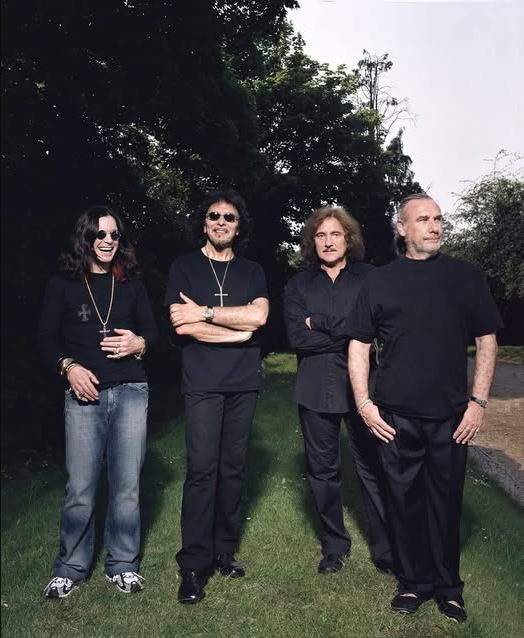
Few songs in rock history carry the same raw power, urgency, and cultural weight as Black Sabbath’s “Paranoid.” Released in 1970 as both the title track and lead single from their second studio album, the song wasn’t just a hit—it became a defining anthem for heavy metal and a reflection of its time. With its blistering riff, haunting lyrics, and unforgettable energy, “Paranoid” continues to stand tall more than five decades later.
In this article, we’ll dive deep into the story behind “Paranoid”—from its spontaneous creation to its chart success, lyrical depth, and lasting cultural impact. Whether you’re a longtime fan or discovering Black Sabbath for the first time, this is the track that explains why they remain pioneers of metal music.
The Birth of Paranoid
The year was 1970. Black Sabbath—Ozzy Osbourne (vocals), Tony Iommi (guitar), Geezer Butler (bass), and Bill Ward (drums)—had already shaken the music world with their self-titled debut earlier that year. But they needed something more for their follow-up album.
According to band lore, “Paranoid” was written almost by accident. The band had finished recording most of the album but still needed a short track to fill time. Tony Iommi started playing a fast, chugging riff in the studio, and within minutes, the rest of the band joined in. Geezer Butler quickly wrote lyrics, Ozzy laid down the vocals, and just like that, “Paranoid” was born.
This spontaneous creation would go on to become one of their most iconic songs—a heavy metal classic that still electrifies audiences today.
Chart Success and Global Recognition
Despite being written in such a casual way, “Paranoid” took off almost immediately. Upon release, the song reached No. 4 on the UK Singles Chart and later peaked at No. 61 on the U.S. Billboard Hot 100. Not bad for a track originally meant as album filler.
But its success wasn’t just commercial. Over time, “Paranoid” came to symbolize an entire movement. It’s now considered one of the greatest heavy metal songs of all time and is frequently included in “best rock songs” lists across major music publications. More importantly, it solidified Black Sabbath’s reputation as the architects of heavy metal.
Breaking Down the Lyrics: A Cry of Despair
What makes “Paranoid” unforgettable isn’t just the riff or Ozzy’s voice—it’s the emotional depth of its lyrics.
Right from the opening lines—“Finished with my woman ’cause she couldn’t help me with my mind”—we’re plunged into the narrator’s struggle with mental turmoil and isolation. The song captures feelings of anxiety, depression, and alienation, themes rarely explored so openly in popular music at the time.
The repeated reference to not finding peace or connection resonates deeply with anyone who has faced inner battles. Butler, who wrote the lyrics, later revealed they were inspired by his own struggles with depression and a sense of detachment from the world.
Themes of Alienation and Hopelessness
Lines like “I tell you to enjoy life, I wish I could but it’s too late” highlight the tragic duality of the song—wanting to find happiness but being unable to escape one’s own mental prison.
It’s this honesty that made “Paranoid” so powerful. Unlike many songs of the era that leaned on escapism or love stories, Black Sabbath spoke directly to the darker realities of the human condition. That brutal honesty gave the band an edge—and connected them to fans on a deeper level.
The Sound That Shook the World
Musically, “Paranoid” is deceptively simple, but its impact is massive.
- Tony Iommi’s guitar riff is fast, raw, and instantly recognizable. It drives the entire song with relentless energy.
- Geezer Butler’s bass line locks in perfectly with the riff, adding depth and groove.
- Bill Ward’s drumming provides a steady, pounding backbone, keeping the song urgent and forceful.
- Ozzy Osbourne’s vocals are haunting and direct, delivering the lyrics with a sense of desperation that makes every word believable.
Together, the four created a sound that was gritty, heavy, and unlike anything that had come before. Producer Rodger Bain wisely chose not to over-polish the track, allowing the raw studio energy to shine through. That decision gave “Paranoid” its timeless, authentic edge.
No Official Music Video—But Plenty of Presence
When “Paranoid” was released in 1970, music videos weren’t yet the norm. Still, the song gained strong visual representation through television appearances and later concert footage. Clips of Black Sabbath performing the track live—often with Ozzy’s manic energy and Iommi’s commanding stage presence—became iconic in their own right.
Over time, “Paranoid” found new life through inclusion in films, documentaries, commercials, and even video games. Each new medium introduced the song to a younger generation, ensuring its legacy never faded.
Controversy and Misunderstanding
Like much of Black Sabbath’s work, “Paranoid” wasn’t without controversy. The band often faced accusations of promoting satanism or dark occult themes, largely because of their heavy sound and imagery. In truth, the song is about mental health, not the occult.
Still, the controversy only fueled their mystique, making “Paranoid” a rebellious anthem embraced by fans who felt misunderstood or alienated by mainstream culture.
Cultural Legacy and Influence
Today, “Paranoid” is recognized not just as a hit song, but as a cultural milestone. It paved the way for countless heavy metal and hard rock bands, influencing everyone from Metallica to Pantera.
The track has been covered by numerous artists across genres, featured in setlists for decades, and continues to be a staple on classic rock radio. When you hear “Paranoid,” you’re not just hearing a song—you’re hearing the birth of a movement.
Why Paranoid Still Matters
So why does “Paranoid” still resonate more than 50 years later? The answer lies in its combination of raw energy, lyrical honesty, and cultural timing.
- It’s short, fast, and powerful—less than three minutes of pure intensity.
- It speaks to universal struggles like anxiety, depression, and alienation—topics as relevant today as they were in 1970.
- It became the soundtrack to a generation disillusioned by war, political unrest, and social upheaval.
Most importantly, “Paranoid” captures the essence of Black Sabbath: music that is dark, heavy, and brutally honest, yet deeply human.
Final Thoughts
Black Sabbath’s “Paranoid” wasn’t meant to be their defining track—but fate had other plans. Born from a spontaneous studio jam, it grew into a timeless anthem that not only cemented the band’s place in rock history but also gave heavy metal its first true global hit.
For fans, “Paranoid” is more than just a song—it’s a lifeline, an outlet, and a reminder that even in despair, music has the power to connect and heal.
More than half a century later, the song still commands the same respect, adrenaline, and emotional pull. And that is why “Paranoid” remains one of the greatest rock songs ever written.
